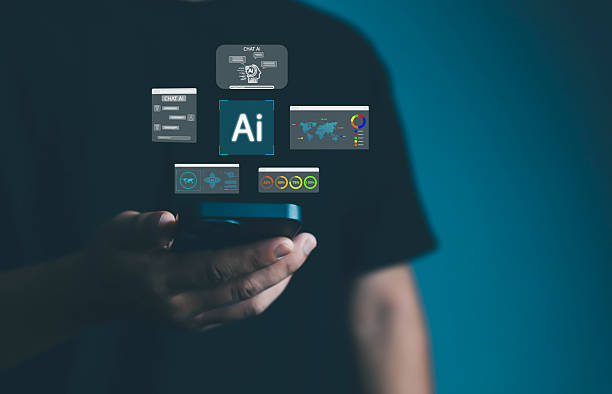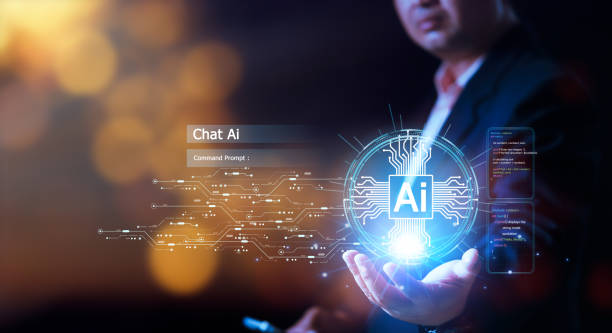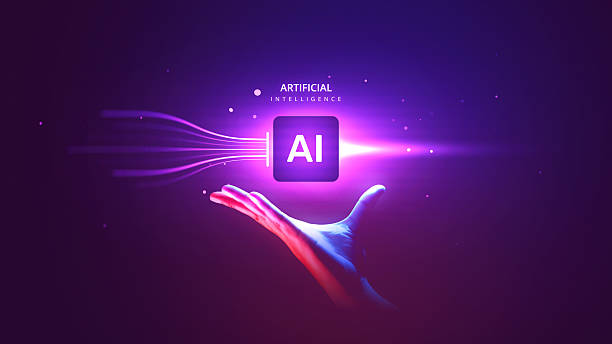Introduction to Artificial Intelligence and Labor Market Transformations

What is Artificial Intelligence and Why Does It Matter?
Artificial Intelligence (#AI) is rapidly changing the landscape of the labor market.
This technology, which involves the development of computer systems capable of performing tasks that typically require human intelligence, such as learning, problem-solving, and decision-making, is penetrating various industries.
From #automotive and #healthcare to #finance and #customer service, AI is increasingly automating tasks, improving productivity, and creating new opportunities.
Meanwhile, understanding the #future of AI jobs is crucial for job seekers and professionals.
A proper understanding of these developments can help individuals acquire the necessary skills and better plan for their future careers.
The potential of AI is vast and can fundamentally transform how we live and work.
Therefore, a thorough and comprehensive examination of this field is of paramount importance.
The impact of #artificial intelligence on existing jobs and the creation of new jobs requires careful consideration to make the best use of this technology.
Artificial Intelligence on Wikipedia
Does your current website convert visitors into customers or drive them away? Solve this problem forever with a professional company website design by Rasaweb!
✅ Creating a powerful brand and credibility
✅ Attracting target customers and increasing sales
⚡ Get a free consultation now!
Jobs at Risk and New Opportunities in Artificial Intelligence

Which Jobs Are at Risk and How Should We Prepare?
Some jobs are more at risk due to automation caused by artificial intelligence.
Jobs that involve repetitive and routine tasks, such as telephone operators, data entry clerks, and some production workers, are most likely to be affected.
To cope with this situation, individuals should seek to acquire new skills and adapt to changes in the labor market.
Learning AI-related skills, such as data analysis, software development, and managing AI projects, can help individuals remain competitive in the labor market.
At the same time, AI creates new job opportunities.
Jobs such as AI engineers, data scientists, cybersecurity specialists, and machine learning specialists are in increasing demand.
To benefit from these opportunities, individuals should continuously update their knowledge and skills and seek to learn new technologies.
The future of AI jobs depends heavily on our ability to adapt to changes and learn new skills.
Adapting to Changes
Essential Skills for Success in the Age of Artificial Intelligence
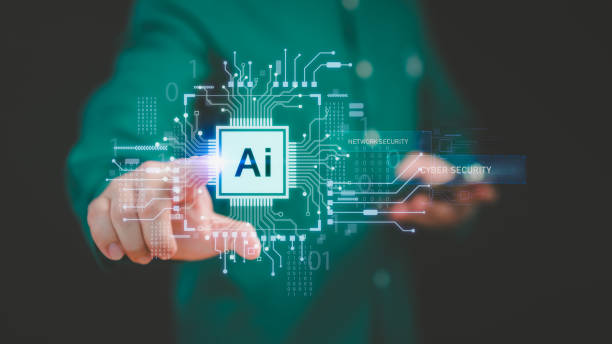
What Skills Are Needed to Work in the Field of Artificial Intelligence?
To succeed in the #future of AI jobs, individuals need to develop a set of technical and soft skills.
Technical skills include knowledge of programming (such as Python and R), statistics, machine learning, and neural networks.
These skills enable individuals to design, develop, and implement AI models.
In addition to technical skills, soft skills are also of great importance.
These skills include critical thinking, problem-solving, creativity, and communication.
Critical thinking helps individuals analyze information and make logical decisions.
Problem-solving enables individuals to face complex challenges and provide innovative solutions.
Creativity helps individuals develop new ideas and improve processes.
Communication is also essential for collaborating with teams and presenting results to stakeholders.
The future of AI jobs requires a combination of these skills so that individuals can operate effectively in this field.
| Technical Skills | Soft Skills |
|---|---|
| Programming (Python, R) | Critical Thinking |
| Statistics | Problem Solving |
| Machine Learning | Creativity |
| Neural Networks | Communication |
The Role of Education in Preparing the Workforce for Artificial Intelligence
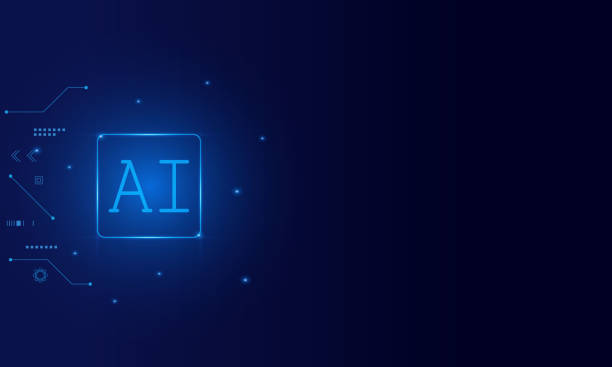
How Should the Education System Change to Prepare the Workforce?
The education system plays a vital role in preparing the workforce for the #future of AI jobs.
Educational programs need to be updated to teach students the skills needed to work in this field.
This includes teaching programming, statistics, machine learning, and other related technical skills.
Emphasis should also be placed on developing soft skills such as critical thinking and problem-solving.
In addition to formal education, lifelong learning opportunities should also be provided.
Workshops, online courses, and short-term training programs can help individuals keep their skills up-to-date and adapt to changes in the labor market.
Collaboration between universities, industry, and government is also essential to ensure that educational programs are aligned with the needs of the labor market.
The future of AI jobs requires investment in education and the development of related skills so that the workforce can operate effectively in this field.
Collaboration between Universities, Industry, and Government
Did you know that 94% of users’ first impressions of a business are related to its website design? With professional company website design by **Rasaweb**, turn this first impression into an opportunity for growth.
✅ Attract more customers and increase sales
✅ Create credibility and trust in the eyes of the audience⚡ Get a free website design consultation!
Industries Most Affected by Artificial Intelligence
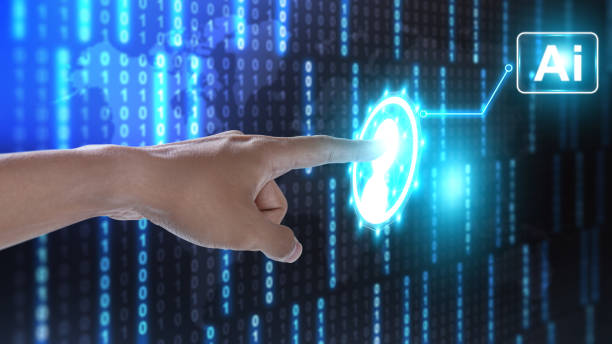
Which Industries Will Experience the Most Transformations?
Artificial intelligence is impacting various industries, but some industries will experience the most transformations.
#Healthcare is one of these industries.
AI can help diagnose diseases, develop new drugs, and improve patient care.
#Automotive will also be affected.
AI can help develop self-driving cars, improve safety, and increase production efficiency.
#Finance will also benefit from AI.
AI can help detect fraud, manage risk, and provide personalized financial services.
#Customer service will also improve with the use of AI.
Chatbots and virtual assistants can answer customers, solve problems, and provide a better experience.
The future of AI jobs in these industries requires individuals who can use these technologies effectively and contribute to their development.
Artificial Intelligence in Medicine
Challenges and Ethical Considerations in the Use of Artificial Intelligence
![]()
What Ethical Challenges Exist in the Use of Artificial Intelligence?
The use of artificial intelligence is associated with numerous challenges and ethical considerations.
One of these challenges is protecting data privacy.
AI requires a lot of data to function effectively, but the collection and use of this data can violate people’s privacy.
To address this challenge, laws and regulations must be put in place to limit the use of data and protect people’s privacy.
Another challenge is bias in AI algorithms.
If the training data for the algorithms is biased, the algorithms may also make discriminatory decisions.
To address this challenge, training data should be carefully reviewed and diversity and inclusion ensured.
Algorithms should also be regularly evaluated and, if necessary, corrected.
The future of AI jobs requires attention to these challenges and ethical considerations so that this technology can be used responsibly.
Ethical Considerations of Artificial Intelligence
Impact of Artificial Intelligence on Management and Leadership Positions
![]()
Will Artificial Intelligence Replace Managers?
Artificial intelligence affects not only lower-level jobs but also management and leadership positions.
AI can help managers in decision-making, planning, and resource management.
AI-based tools can analyze data, identify patterns, and provide accurate predictions.
This information can help managers make better decisions and improve organizational performance.
However, AI cannot completely replace managers.
Human skills such as leadership, communication, and empathy are still essential for managing and motivating teams.
Managers should be able to use AI as a tool to improve their performance and lead teams more effectively.
The future of AI jobs in management requires a combination of technical and human skills.
| Management Tasks | Role of Artificial Intelligence |
|---|---|
| Decision-Making | Analyzing Data and Providing Suggestions |
| Planning | Predicting Trends and Allocating Resources |
| Resource Management | Optimizing Resource Allocation and Reducing Costs |
| Team Leadership | Identifying Strengths and Weaknesses of Team Members |
Personal Strategies for Preparing for the Future of AI Jobs
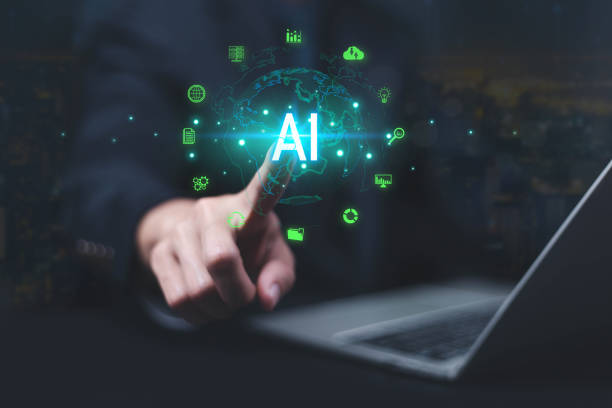
How Can One Personally Prepare for the Future?
To prepare for the #future of AI jobs, individuals should follow specific personal strategies.
The first step is to identify the skills needed for jobs of interest.
Individuals should research which skills are in demand in the field of artificial intelligence and try to acquire these skills.
The second step is lifelong learning.
Artificial intelligence is changing rapidly, so individuals need to constantly update their knowledge and skills.
Participating in workshops, online courses, and conferences can help individuals stay abreast of the latest developments.
The third step is networking.
Connecting with people active in the field of artificial intelligence can help individuals identify new job opportunities and learn from the experiences of others.
The future of AI jobs requires individual effort and perseverance so that individuals can succeed in this field.
Are you annoyed by losing customers who visit your site to buy?
Rasaweb is your specialist solution for having a successful online store.
✅ Significant increase in your online sales
✅ Creating trust and professional branding with customers⚡ Get free advice from Rasaweb experts!
The Role of Government and Policy-Making in the Development of Artificial Intelligence and the Labor Market
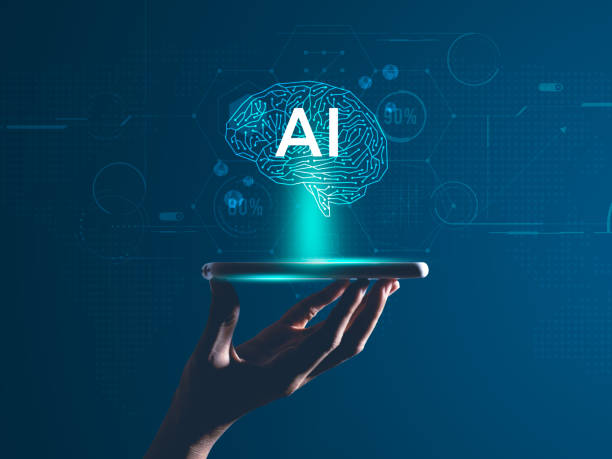
How Can the Government Help Develop Artificial Intelligence?
The government has an important role in the development of artificial intelligence and the labor market.
The government can help develop new technologies by investing in AI research and development.
The government can also ensure the responsible use of artificial intelligence by creating appropriate laws and regulations.
The government can prepare the workforce to work in the field of artificial intelligence by providing skills training.
The government can help reduce unemployment caused by automation by creating new job opportunities.
Government policies should be such that they support the development of artificial intelligence and at the same time protect the rights of workers.
The future of AI jobs requires cooperation between government, industry, and universities to make the best use of this technology.
The Role of Government in Artificial Intelligence
A Look at the Future of AI Jobs and Final Recommendations
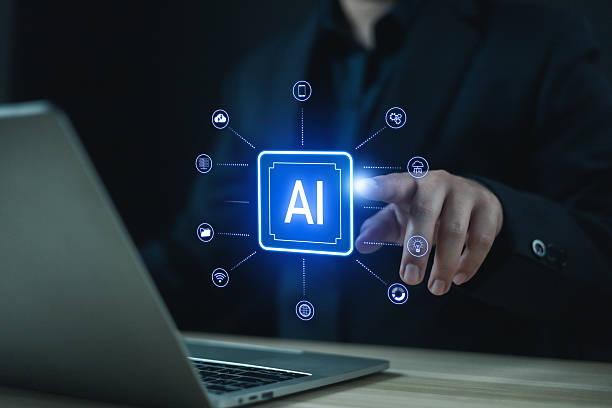
What Will the Future Be Like?
The #future of AI jobs is bright and promising.
AI has the potential to improve our lives and work.
However, to benefit from this potential, we must pay attention to the challenges and ethical considerations and adopt appropriate strategies.
Individuals should acquire the necessary skills, constantly update their knowledge, and adapt to changes in the labor market.
The government should support the development of artificial intelligence and protect the rights of workers.
With cooperation and joint efforts, we can turn the future of AI jobs into a great opportunity for everyone.
The #future of AI jobs is changing rapidly and requires readiness and adaptation.
The future of AI jobs provides many opportunities for people with the right skills.
The future of AI jobs requires attention to education and skills development.
The future of AI jobs will be influenced by various industries.
The future of AI jobs requires attention to challenges and ethical considerations.
The future of AI jobs also affects management and leadership positions.
The #future of AI jobs requires specific personal strategies.
The #future of AI jobs requires appropriate government policies.
Frequently Asked Questions
| Question | Answer |
|---|---|
| What impact will AI have on the future labor market? | AI will automate repetitive jobs, but it will also create new and more complex jobs in areas such as the development, maintenance, and training of AI systems. |
| Which jobs are most at risk of being replaced by AI? | Jobs that involve repetitive, rule-based tasks with low demand for creativity or emotional intelligence, such as some manufacturing, data entry, and simple customer service jobs, are more at risk. |
| What skills are essential for success in a future career with AI? | Skills such as critical thinking, complex problem-solving, creativity, emotional intelligence, data literacy, the ability to work with AI, and lifelong learning are of great importance. |
| Will AI cause widespread unemployment? | Some jobs will disappear, but history has shown that new technologies, instead of causing widespread unemployment, reshape the labor market and create new jobs. The need for adaptation and retraining is important. |
| What new job opportunities are emerging with the rise of AI? | Jobs such as machine learning engineer, data scientist, AI ethicist, human-AI interaction designer, and digital transformation consultant are among the new opportunities. |
| What is the role of education in preparing for a future career with AI? | Education should focus on developing soft skills, computational thinking, digital literacy, and the ability to learn continuously to prepare individuals for future changes. |
| How can I prepare myself for the labor market changes caused by AI? | You can prepare yourself by learning new skills related to AI and data, strengthening soft skills, developing critical thinking and creativity, and developing a habit of lifelong learning. |
| Will AI ethics become an important career field? | Yes, given the increasing concerns about biases, privacy, and automated decision-making of AI, the role of AI ethics experts to ensure its responsible development will be critical. |
| What is the importance of human-AI collaboration in the future job market? | Human-AI collaboration, rather than competition, shapes the future of the labor market. AI can be a tool to increase productivity and focus human on more complex and creative tasks. |
| Which industries will be most affected by AI? | Almost all industries will be affected, but areas such as healthcare, finance, transportation, manufacturing, education, and customer service are pioneers in the adoption and transformation by AI. |
And other services of Rasa Web Advertising Agency in the field of advertising
Smart Digital Branding: An effective tool to attract customers with an attractive user interface design.
Smart Brand Identity: A creative platform to improve website traffic by managing Google Ads.
Smart UI/UX: A combination of creativity and technology for digital branding by targeting the audience accurately.
Smart Marketplace: A professional solution to increase sales with a focus on optimizing key pages.
Smart Brand Identity: A combination of creativity and technology for user interaction by targeting the audience accurately.
And more than hundreds of other services in the field of internet advertising, advertising consulting, and organizational solutions
Internet Advertising | Advertising Strategy | Advertorial
Resources
AI jobs on Indeed
,What is artificial intelligence? by IBM
,AI Engineering on Coursera
,Artificial Intelligence from Gartner’s perspective
? If you are looking to improve your business position in the online space, Rasaweb Digital Marketing Agency, with its expertise in company website design and providing comprehensive digital marketing solutions, is ready to help you on your way to achieving your goals.
📍 Tehran, Mirdamad Street, next to the Central Bank, South Kazerun Alley, Ramin Alley No. 6

